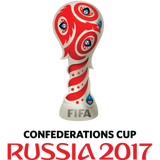
Arena rebuilds US confidence after Klinsmann
MEXICO CITY (AP) Bruce Arena has managed the tricky task of establishing a sense of calm along with urgency within the U.S. soccer team. It's quite a contrast to the frustration and futility at the end of Jurgen Klinsmann's coaching reign last November.
Of course, climbing from last to third in the final round of World Cup qualifying has eased pressure immensely.
''We haven't lost yet this year since Bruce has had the team,'' U.S. Soccer Federation President Sunil Gulati said Monday, a day after a 1-1 draw with Mexico at Azteca Stadium. ''So whatever has gotten us there, whatever occasion or bonding that's led to a change, that's a positive, and certainly Bruce has to receive a lot of credit.''
Now 65, Arena is a member of the U.S. National Soccer Hall of Fame. He coached the national team from 1998-2006, leading the Americans to the 2002 World Cup quarterfinals in their best result since the first tournament in 1930.
Klinsmann was fired after a 2-1 home loss to Mexico and a 4-0 fiasco at Costa Rica. The rebound in qualifying under the witty and sarcastic Arena began with a 6-0 home win over Honduras and a 1-1 tie at Panama. It continued with a 2-0 home victory over Trinidad and Tobago last Thursday in Colorado and the draw against El Tri - just the third point the Americans have gained at Azteca.
''I'm not going to compare the current situation to any previous situations. I don't think that is appropriate. But I think that clearly the team has responded to some of the things that Bruce has outlined and is doing, and that's what we were hoping for,'' Gulati said. ''I think it's probably a lot of little things and not any one thing.
''Obviously when you're on the field and in camp and the team starts to believe even before they've played a game that they're capable of playing better and of winning, that helps. And then when you go out and see results that come from that, from following the path he's laid out, that obviously gives people a lot of confidence not only in Bruce but in themselves and in the team.''
On the sidewalk outside Estadio Nacional in San Jose, Costa Rica, last fall, U.S. captain Michael Bradley said self-examination and urgency was needed. Speaking in Azteca's tunnel on Sunday night, Bradley diagnosed what had gone wrong.
''It was just a case at the end of last year where a few too many areas started to drop, and I think Bruce has done a very good job of coming in and just little by little working at getting every - just raising the level across the board,'' he said. ''And obviously a big part of it is this idea of team, of spirit, of mentality, of (guts) and understanding that we have good players, we have a good team, but we're not good enough to just step on the field and think that things are going to take care of themselves.''
Arena's biggest personnel changes were to add left back Jorge Villafana, who was overlooked by Klinsmann, and to bring back midfielder Darlington Nagbe, dropped by Klinsmann in a spat for refusing an invitation to a training camp ahead of exhibition games last October.
Arena used 20 of the 26 players on his roster in the last two qualifiers, changing seven starters because of the 7,820-foot altitude and the short recovery time.
''When you have the confidence of the manager to put you in a game like this, it means everything, obviously,'' said Brad Guzan, who started against Mexico in place of No. 1 goalkeeper Tim Howard. ''We've got a lot of good guys in our group, not just the guys that are here on this trip, but guys back home, and I think ultimately that's going to make our team stronger.''
Arena shifted from a 4-4-2 formation against Trinidad to a five-man back line against Mexico, a tactic he settled on in the winter, and had players practice daily once the most recent training camp opened May 29.
He wouldn't try to explain how he created confidence.
''I haven't spent a whole lot of time examining what happened in the past. And in a lot of ways, that's not my business,'' Arena said. ''I'm just doing things the way I do things. I can't comment on the things that went on in the past, but I could say that the players have responded very well, and we're really becoming a team.''
Mexico leads the final round of the North and Central American and Caribbean region with 14 points, followed by Costa Rica and the U.S. (eight each), Panama (six), Honduras (four) and Trinidad and Tobago (three). The top three advance to next year's World Cup in Russia, and the fourth-place team faces Asia's No. 5 nation in a playoff.
Panama hosts Honduras on Tuesday and Costa Rica is home against Trinidad and Tobago. When qualifying resumes, the U.S. plays Costa Rica on Sept. 1, most likely in Harrison, New Jersey, then is at Honduras four days later. The hexagonal concludes with matches Oct. 6 against Panama at Orlando, Florida, and at Trinidad on Oct. 10.
Home wins and road draws should be sufficient for an eighth straight World Cup berth.
''Clearly 16 points, except in very, very unusual situations, will get us one of the automatic spots,'' Gulati said. ''I think it's quite possible we could win some of the away games.''
